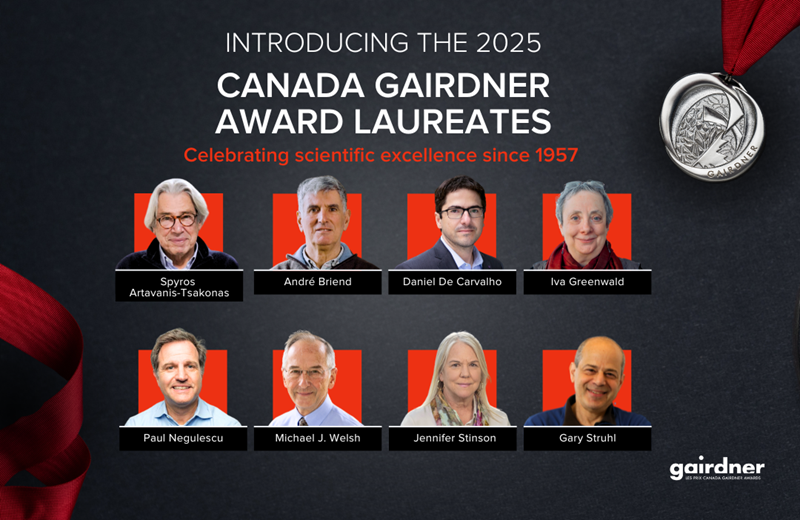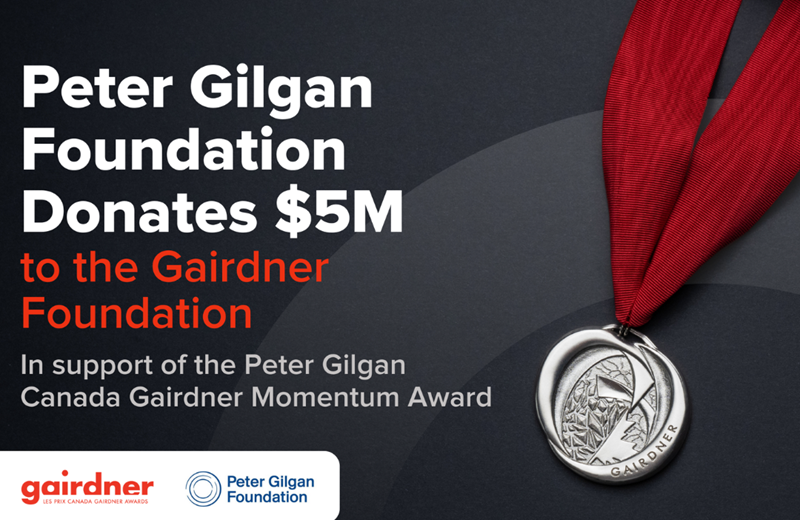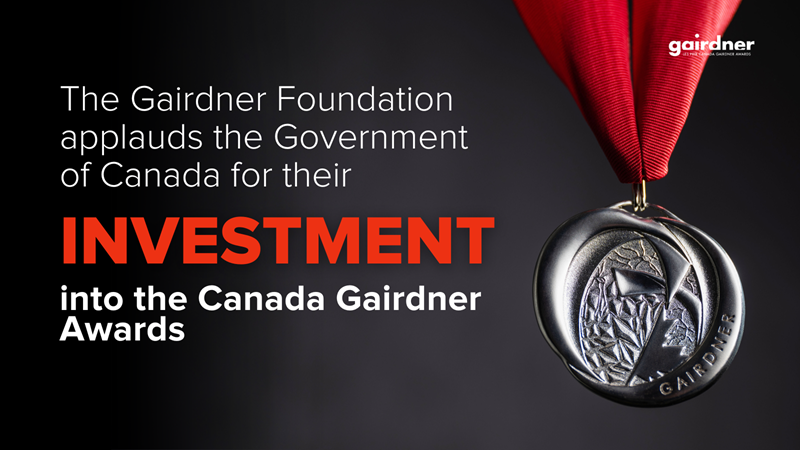Announcing the 2024 Gairdner Early Career Investigators

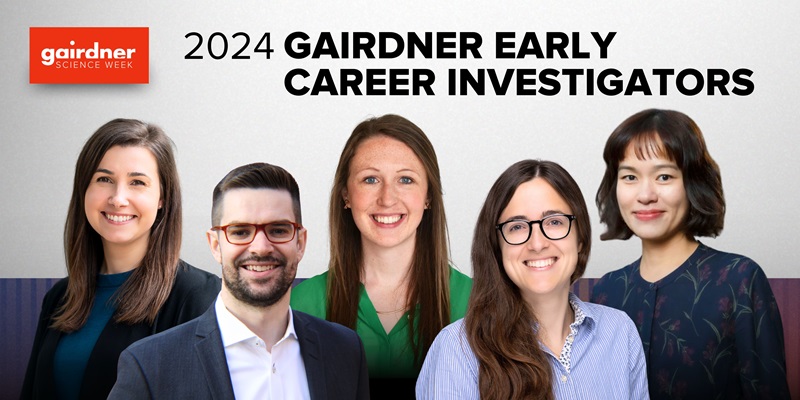
The Gairdner Foundation is pleased to announce the winners of the 2024 Gairdner Early Career Investigators (ECI) competition.
Annually, the Gairdner Foundation invites early career investigators across Canada to submit an application to present their research as part of Gairdner Science Week events in October. These five investigators have been selected by the 2024 Canada Gairdner Award laureates and will present their research alongside them during Gairdner Science Week 2024 events in Toronto from October 23 - 25. Registration is now open for all events here.
Congratulations to the winners!
Dr. Laura Evgin
Scientist at BC Cancer Research Institute, Assistant Professor at University of British Columbia.
Selected by: Dr. Michel Sadelain
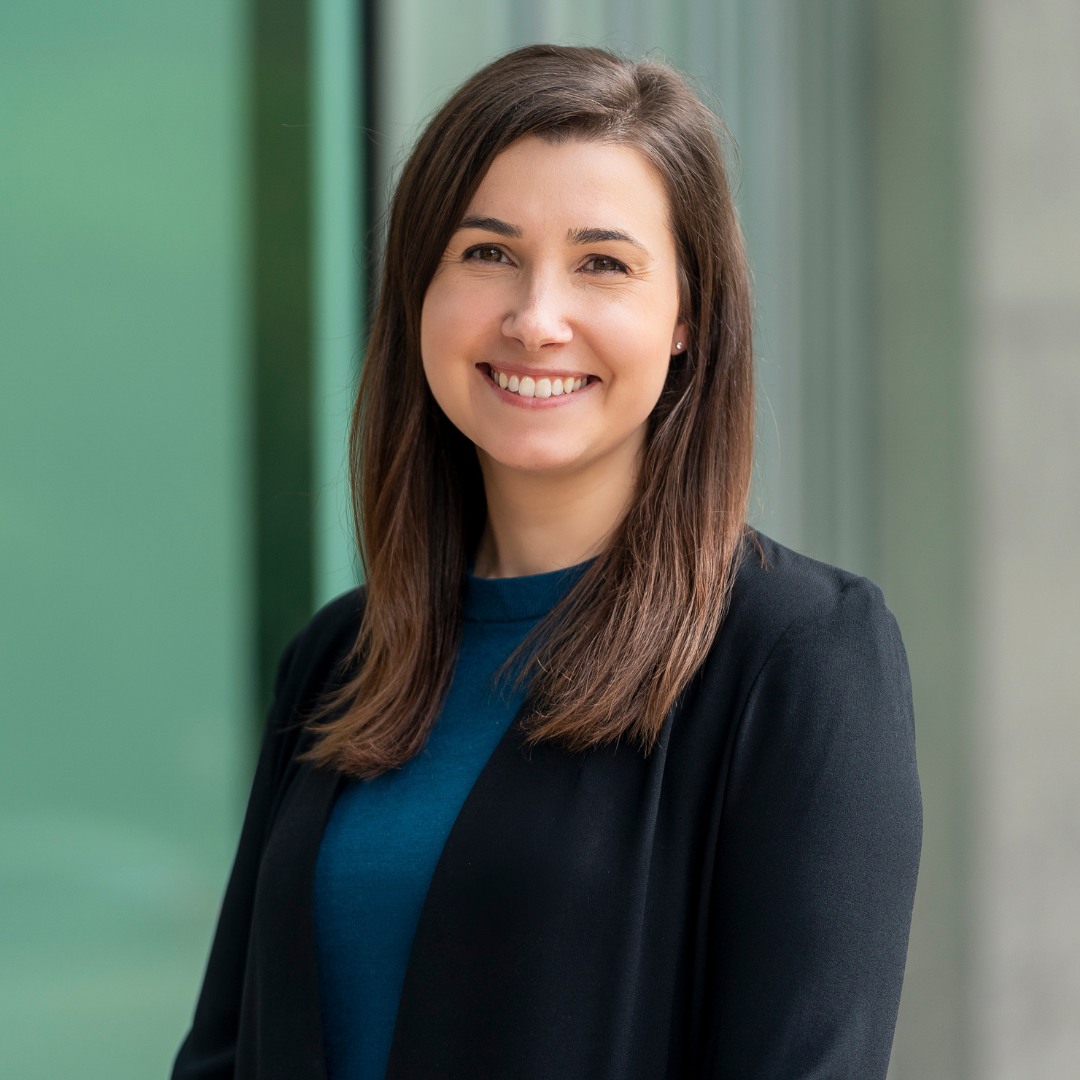
Dr. Laura Evgin is a Scientist in the Genome Sciences Department at the BC Cancer Research Institute (BCCRI) and an Assistant Professor in the Department of Medical Genetics at the University of British Columbia in Vancouver. She earned her PhD in Biochemistry from the University of Ottawa under the guidance of Dr. John Bell, followed by a postdoctoral fellowship at Mayo Clinic in Rochester, Minnesota, where she worked with Dr. Richard Vile. In 2020, Dr. Evgin established her research group at the BCCRI, focusing on enhancing the efficacy and accessibility of T cell therapies for cancer treatment. Dr. Evgin's laboratory leverages diverse tools and model systems to design innovative chimeric antigen receptor (CAR) constructs, develop CAR T cell engineering strategies both ex vivo and in vivo, and evaluate CAR T cell function in immune-competent models of cancer and autoimmune diseases.
Dr. Evgin will present "Engineering effective and accessible CAR T cells" during the Laureate Lectures on Oct. 24. Details here.
"The innovation of chimeric antigen receptor (CAR) T cell therapy has transformed cancer treatment, advanced synthetic immunology research, expanded cell therapy infrastructure and regulatory frameworks, and offered new hope to thousands of cancer patients. We are now at a particularly exciting time where CAR T cell therapy is standard of care for multiple hematologic cancers, and this success has inspired a wave of new CAR applications beyond oncology, with early promising results for patients with autoimmune diseases. It is a privilege to lead a lab that builds on the work of Drs. Michel Sadelain and Zelig Eshhar, and I am deeply honoured to have been recognized by this year's winners."
Dr. Michael Fralick, MD, PhD, MSc, FRCPC
Sinai Health, LTRI
Selected by: Dr. Gagandeep Kang
a1e71ec5-c14b-42b9-a2b8-d4f258cdf2fb.jpg?sfvrsn=b5ed5172_1)
Dr. Michael Fralick is a board-certified General Internist in Canada and the US. He completed his medical degree and internal medicine residency training at the University of Toronto. Thereafter, he completed a Master of Science in Clinical Epidemiology at Harvard University. His PhD, completed at the University of Toronto, focused on the intersection between supervised machine learning and pharmacoepidemiology. During the COVID-19 pandemic, he shifted his research focus to pragmatic clinical trials to identify treatments for COVID-19. Many of these treatments subsequently became the standard of care for the management of patients hospitalized with COVID-19 globally. He also co-led environmental surveillance work for detecting SARS-CoV-2 from the built environment (in particular, the floor!) which was subsequently shown to predict outbreaks in hospitals and long-term care homes before they are clinically recognized. Currently, Michael is Clinician Scientist at Sinai Health and LTRI in Toronto and Associate Professor at the University of Toronto’s Faculty of Medicine. He is also a founding board member and deputy editor at the New England Journal of Medicine Evidence. He also works clinically at the Sault Area Hospital in Sault Ste. Marie, Ontario. Michael lives in Toronto with his wife Brittany and their baby daughter Hailey.
Dr. Fralick will present during the Global Health Symposium on Oct. 25. Details here.
"Being selected as an Early Career Gairdner Laureate is deeply meaningful to me, as it recognizes not only the work I’ve been a part of but also the potential impact our work has had on COVID-19. I am excited to meet the other recipients as well as the recipients of the Gairdner awards."
Kathleen Houlahan, PhD
Assistant Professor, Department of Biochemistry and Biomedical Sciences, McMaster University Principal Investigator, Centre for Discovery in Cancer Research, McMaster University
Selected by: Drs. Shankar Balasubramanian, David Klenerman and Pascal Mayer
395aa4b3-564b-43d6-9baf-34af214246d8.jpg?sfvrsn=b371df33_1)
Katie Houlahan is an Assistant Professor in the Department of Biochemistry and Biomedical Sciences (BBS) and a Principal Investigator at the Centre for Discovery in Cancer Research (CDCR) at McMaster University. Her lab focuses on the interplay between inherited DNA variants and cancer-associated mutations in tumours leveraging large-scale multi-omics data along with statistical and machine learning models.
She completed her PhD at the University of Toronto followed by a postdoctoral fellowship at Stanford University. During her training, she was awarded both the CIHR Vanier Scholarship and Banting Postdoctoral Fellowship. In 2024, she was named an American Association for Cancer Research (AACR) NextGen Star as well as a Protostar by ScienceAdvisor.
Katie Houlahan will present "Germline-mediated immunoediting sculpts breast cancer subtypes and metastatic proclivity" during the International Symposium on Oct. 23. Details here.
"It is a great honour to be selected by Drs. Balasubramanian, Klenerman and Mayer for this award. I am particularly excited for the opportunity to engage with the laureates and to share my work to the broad Gairdner Symposium audience. The exposure and networking opportunities this award provides so early in my career will be paramount in helping me grow my scientific network in Canada and beyond."
Dr. Raquel Cuella Martin
Assistant Professor, Department of Human Genetics Principal Investigator, Victor Phillip Dahdaleh Institute of Genomic Medicine
Selected by: Dr. Christian Landry
f04d95f3-b1cf-4c3b-85cd-2155a90308a1.jpg?sfvrsn=3931b0bf_1)
Dr. Raquel Cuella Martin joined the Department of Human Genetics at McGill University as an Assistant Professor in 2022. She undertook her Ph.D. studies at Dr. JR. Chapman’s lab at the Wellcome Center for Human Genetics (University of Oxford). During this time, Raquel described the mechanistic role of the DNA repair protein 53BP1 in optimal p53 tumour suppressor responses. In her postdoctoral work as an EMBO long-term fellow at the Ciccia lab (Columbia University), she used CRISPR-dependent base editing to perform genetic screens at nucleotide resolution and functionalize DNA variants at scale. Such an approach allowed her to identify loss-, gain- and separation-of-function mutations, and new functional domains in DNA damage response proteins, and to functionalize variants of uncertain significance in cancer predisposition syndromes. Now, her lab applies cutting-edge large-scale precision genome editing to approach complex biological questions and to improve intelligent drug design.
Dr. Cuella Martin is presenting "Understand unique protein features with precision genome engineering" during the Laureate Lectures on Oct. 24. Details here.
"It is such an honour and a privilege (thanks, Dr Landry!). Also, as a newcomer to the Canadian research community, this is an opportunity to expand my network and a unique forum to showcase our work and scientific vision."
Dr. Sue Tsai
Canada Research Chair in Immunometabolism and Diabetes, Assistant Professor Department of Medical Microbiology and Immunology, University of Alberta
Selected by: Dr. Meghan Azad
f7b78d2a-a5ae-4fe0-b864-89c5b92b14cb.jpg?sfvrsn=1b0741c2_1)
Dr. Sue Tsai is an early investigator at the University of Alberta studying immunology and immunometabolism since 2019. She did her PhD in Dr. Pere Santamaria’s lab where her thesis focused on tolerance induction in type 1 diabetes (T1D) by protective major histocompatibility complex class II (MHC II) genes, as well as with antigen specific nanoparticle based immunotherapeutic vaccines. She then moved to Toronto and did her postdoc training with Dr. Daniel Winer at the University Health Network. During this time, Dr. Tsai expanded her horizon and studied mechanisms of immune dysregulation in models of obesity-related insulin resistance. Her current research focus builds on her experiences in both labs to understand the regulation of the immune response and its connection to metabolism during chronic diseases such as Type 1 Diabetes and Type 2 Diabetes. Using a combination of animal models and immunological approaches, her laboratory studies the role of immune-metabolic cross-talks in diabetes, infection and cancer and explores potential new strategies to improve protective immunity.
Dr. Tsai is presenting "Maternal humoral factors modulate offspring gut immune homeostasis to mitigate diabetes development" during the Laureate Lectures on Oct. 24. Details here.
"I am honored and hugely encouraged to be selected by Dr. Meghan Azad. I look forward to chatting science with her and learning more about her work on maternal determinants of health. I am also excited to share my research with her and the Gairdner community."

95feaf29-7cae-489c-ab13-8ad0e89e9e7d.tmb-cfthumb_fb.png?Culture=en&sfvrsn=5a947cd0_1)
.tmb-cfthumb_fb.jpg?Culture=en&sfvrsn=515db74_1)
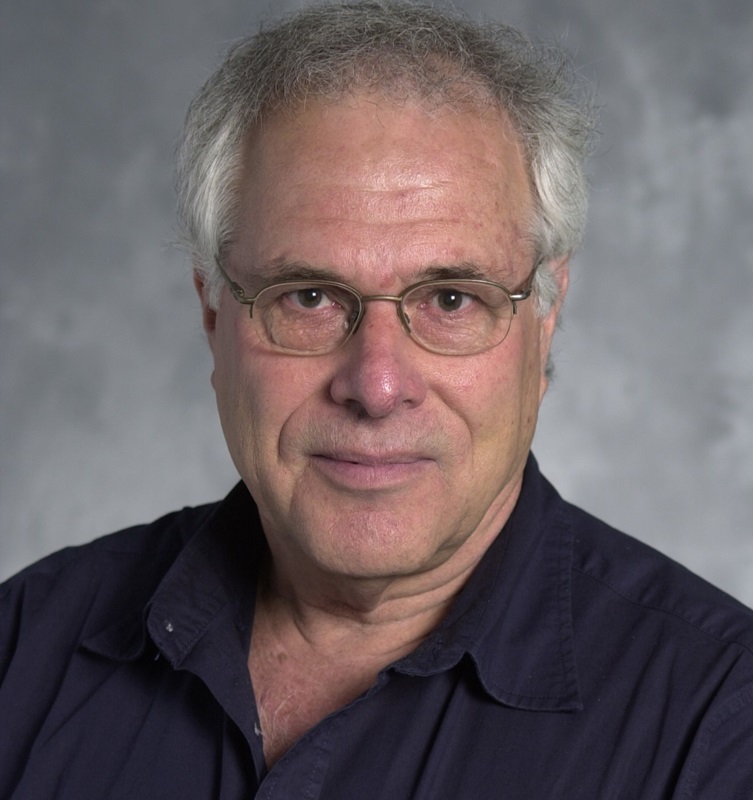
.tmb-cfthumb_fb.png?Culture=en&sfvrsn=d36bbfeb_1)

a8c38f53-c5ce-4e0c-81f3-59a729788e36.tmb-cfthumb_fb.png?Culture=en&sfvrsn=9bfb9571_1)

.tmb-cfthumb_fb.jpg?Culture=en&sfvrsn=dde8f19b_1)
.tmb-cfthumb_fb.png?Culture=en&sfvrsn=374218_1)
